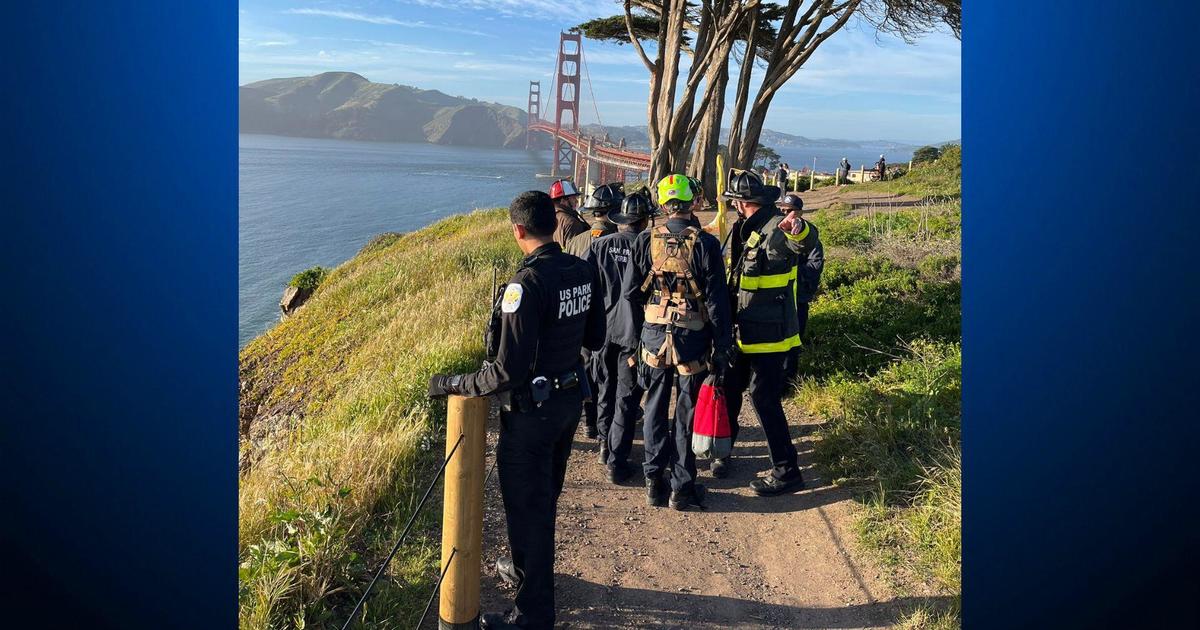Philippine Leader Tells Obama, 'You Can Go To Hell' In Latest Tirade
MANILA, Philippines (CBS / AP) -- Philippine leader Rodrigo Duterte told President Barack Obama "you can go to hell" in a speech Tuesday that was his strongest tirade so far against the U.S. over its criticism of his deadly anti-drug campaign, adding that he may eventually decide to "break up with America."
He also lashed out anew at the European Union, saying the bloc, which has also criticized his brutal crackdown, "better choose purgatory, hell is filled up."
Since becoming president in June, Duterte has had an uneasy relationship with the U.S. and with Obama and has declared intentions to bolster relations with China and Russia as he revamps Philippine foreign policy that has long leaned on Washington.
The brash-speaking leader also has been hypersensitive to criticism over his anti-drug crackdown, which has left more than an estimated 3,000 suspected drug dealers and pushers dead in just three months, alarming the United Nations, the EU, the U.S. and human rights watchdogs.
In a speech before a local convention attended by officials and business executives, Duterte outlined his disappointments with the U.S., which has asked his government to stop the widespread killings and has questioned whether human rights are being violated. He also described Washington as an unreliable ally, saying Filipino forces have not benefited from joint combat exercises with U.S. troops.
"Instead of helping us, the first to criticize is this State Department, so you can go to hell, Mr. Obama, you can go to hell," Duterte said. Then addressing the EU, he said: "Better choose purgatory, hell is filled up."
In a later speech at a synagogue in Makati city in the Manila metropolis, Duterte warned he may decide to "break up with America" in his most serious threat so far to push relations back with Washington.
"Eventually I might, in my time, I will break up with America," he said without elaborating. "I would rather go to Russia and to China."
In Washington, White House spokesman Josh Earnest said Tuesday that the U.S. had not received any official request from Duterte or any other Philippine official to alter any aspect of bilateral cooperation.
"This is an alliance that is robust and that benefits both of our countries," Earnest said. "Even as we protect this strong alliance, the administration and the United States of America will not hesitate to raise our concerns about extra-judicial killings. We remain deeply concerned by reports of widespread extrajudicial killings by or at the behest of government authorities in the Philippines. The use of that kind of tactic is entirely inconsistent with universal human rights and the shared values of our two countries."
Duterte has given assurances that he would not abrogate a 1951 Mutual Defense Treaty with the U.S. and will maintain the long alliance with America, one of his country's largest trading partners and provider of development and military aid and defense equipment.
The U.S. has expressed concern over the extrajudicial killings and urged Duterte's government to ensure law enforcement efforts comply with human rights obligations. Last month, Obama canceled a planned first meeting with Duterte on the sidelines of an Asian summit in Laos after the Filipino leader blurted "son of a bitch" in warning the U.S. leader not to lecture him on human rights ahead of their meeting. Duterte later expressed regrets over his remarks.
Angered by U.S. criticism, Duterte has made a series of public pronouncements that he could scale back the activities and presence of visiting U.S. troops in the country.
Last week, Duterte said the joint U.S.-Philippine combat exercises to be held this week, the first of his presidency, would also be the last of his tenure. The exercises, centering on amphibious landing drills, started Tuesday under some uncertainty because of those remarks.
Marine commanders from both sides said at the opening ceremony that the exercises, involving 1,100 American and 400 Filipino military personnel, are aimed at improving readiness by the two countries to respond to a range of crises while deepening their historic ties.
U.S. Embassy officials said Washington has not been formally notified by the Philippine government of any move to scrap other planned drills. Such a move by the Philippines would impede Washington's plans to expand the footprint of U.S. forces in Southeast Asia to counter China.
A Philippine military spokesman for the ongoing exercises, Capt. Ryan Lacuesta, sidestepped the question of whether Duterte's remarks have affected the troops and the atmosphere of the drills.
U.S. Marine Brig. Gen. John Jansen said that aside from promoting regional security, the exercises have helped save lives in terms of fostering more rapid and organized responses to disasters like Typhoon Haiyan in 2013.
"Our alliance remains a key source of stability in the Asia-Pacific region," Jansen said, expressing confidence "that we will continue to build our partnership and capabilities together."
While the Obama administration maintains that its alliance with the Philippines remains "ironclad," a senior U.S. diplomat cautioned Duterte last week against more anti-U.S. posturing. Many of Duterte's stunning pronouncements have typically been walked back by other Philippines officials.
"I think it would be a serious mistake in a democratic country like the Philippines to underestimate the power of the public's affinity for the U.S. That's people power," Assistant Secretary of State Daniel Russel told The Associated Press.
Russel did not draw a direct comparison, but past Philippine presidents have been toppled by popular protests dubbed "people power," including former dictator Ferdinand Marcos, who was ousted in 1986.
© Copyright 2016 The Associated Press. All Rights Reserved. This material may not be published, broadcast, rewritten or redistributed.



